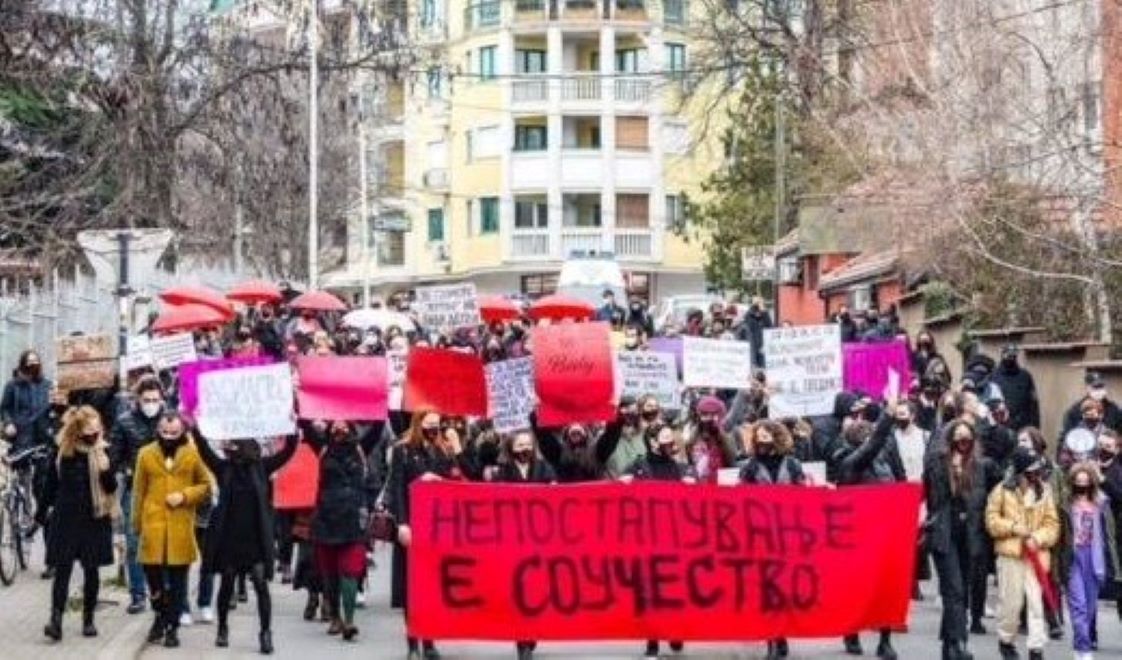As female politicians, I believe we face challenges that hit us more emotionally and disturb us, sometimes shock us, and many times make us unconsciously withdraw in front of the aggression or the simplicity of some male “colleagues”, who certainly have no place in politics.

Jana Belcheva Andreevska
There are different views and stereotypes in the world about who is involved in politics. Some say that people who have a profession, work professionally, and people who do not, go to politics. For some, politics is a time-limited activity, until they make their ideas come true, or get disappointed and leave it forever. For some it is a commitment, and for most women in politics the activity is an ideology complemented by altruism and the need to take care and change the world for the better.
I often think that women had their political influence even when they were not involved, but they were visible; when they expressed their aspirations and their views on right or wrong at home, in their smaller or larger communities. The loud and brave women were always “contagious”, their courage was transmitted and new supporters were engaged. Or, as the American writer Maya Angelou says: Each time a woman stands for herself, without knowing it possibly, without claiming it, she stands for all women.
For all women, active involvement in politics is also related to the support they have from home. That supportive environment is not common, it is also a privilege, and it is related to the economic situation, education and emancipation, the division of responsibilities and obligations, and freedom. That is why it is even more important for all of us who are involved in politics to be the voice of all women, of their needs, of their freedoms, of their education and of their dignity.
I am one of those who entered politics in their forties, at a time when I started to think that our dignity is not important to those who carry and create local policies. I could not believe that someone accepts to live in conditions that are undignified, inhuman and of poor quality, and that it should be a “normal” environment for our children. I still think that what is good, beautiful, normal and of quality must become a part of the life of my children, of yours, of all the children in our environment; they should not to get used to the “abnormal”, accepting it as inevitable. As an engineer and a woman obsessed with numbers and knowledge of spatial data, I set out to look at the publicly available survey data for the proposed urban plan for the neighborhood in which I live.
I entered the local politics as an ardent supporter of the people, of their needs, of the youngest and the oldest, of the numerous, but even more so of the marginalized and the few. We must not betray idealism, even though our disappointments are daily. Even hope is a discipline, as Rumena Buzharovska has written.
As female politicians, I believe we face challenges that hit us more emotionally and disturb us, sometimes shock us, and many times make us unconsciously withdraw in front of the aggression or the simplicity of some male “colleagues”, who certainly have no place in politics. My disappointments, however, were greater when, instead of getting a support, I was attacked by women for my courage, determination, or intransigence. Reconsideration of decisions and doubt in correctness cost Socrates his life, but after almost 3,000 years, it left us with a civilizational benefit that reflection and debate give new value in making better decisions. Withdrawing from the debate due to the aggressiveness of the opponents means losing that civilizational value, which is why I appeal to all women in politics to stand upright and courageously and not to remain silent.
Jana Belcheva Andreevska, Councilor of the local municipal council in Skopje



Leave A Comment